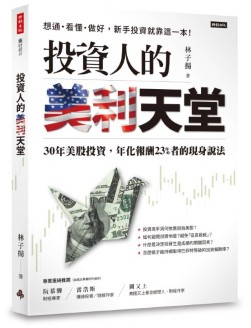Ignorance is defined as a lack of knowledge. You can be an smart person but be ignorant in certain areas. About forecast, John Maynard Keynes said “We simply don’t know.”
There are three kinds of ignorance
Ignorance can be divided into three types:
- Self-knowledge Ignorance is when one knows that he or she does not know.
- Meta-Ignorance is not knowing that you don’t know.
- Paranoid Ignorance is the belief that one knows something that one does not know, and most of these views are wrong.
Harvard economist John Kenneth Galbraith once said, “There are only two kinds of people who try to predict the future: those who know nothing, and those who don’t know they know nothing.” “People!” This sentence really hits the nail on the head.
Rumsfeld matrix
Reports that say that something hasn’t happened are always interesting to me, because as we know, there are known knowns; there are things we know we know. We also know there are known unknowns; that is to say we know there are some things we do not know. But there are also unknown unknowns—the ones we don’t know we don’t know. And if one looks throughout the history of our country and other free countries, it is the latter category that tends to be the difficult ones.
The statement became the subject of much commentary. In The Decision Book (2013), author Mikael Krogerus refers to it as the “Rumsfeld matrix”. The statement also features in a 2013 documentary film, The Unknown Known, directed by Errol Morris.
Known unknowns refers to “risks you are aware of, such as canceled flights”,whereas unknown unknowns are risks that come from situations that are so unexpected that they would not be considered.
Ignorance breeds fear
Albert Camus wrote in his novel “The Plague“:”The evil in the world comes almost always from ignorance, and goodwill can cause as much damage as ill-will if it is not enlightened.”
Paul-Henri Thiry, French philosopher, once said “Man is superstitious only because he is afraid (craintif); he fears (craint) only because he is ignorant“
Self-knowledge is the most important
Socrates famously said: “The only true wisdom is in knowing you know nothing”, he also said: “I know that I know nothing.“
Bertrand Russell once said “The whole problem with the world is that fools and fanatics are always so certain of themselves, and wiser people so full of doubts.”
People waste energy on pointless things
People squander a great deal of time and energy on guessing about known unknowns. Brexit, emerging markets, commodities, interest rates, oil prices, quantitative easing, and the US presidential election are all known unknowns.
The problem isn’t just that these events are difficult or even impossible to predict. Markets are so-called “second-order” systems: to invest successfully on this basis, you must not only predict the outcome of events, but also know the market’s expectations and how the market will react.
Then there’s the problem of “unknown unknowns.” Events that can cause significant market shifts may be events that no one has even noticed. If you don’t even know an event exists, you’ll find it very difficult to predict its outcome.
Closing words
John Kenneth Galbraith said, “There are two kinds of forecasters: those who are ignorant, and those who do not know they are ignorant.”
In Plato’s Apology (sections 21d–23c), Socrates describes how the Oracle at Delphi proclaimed that no one was wiser than Socrates. Socrates, puzzled by this, went around questioning people who were reputed to be wise. He concluded:
“I am better off than he is—for he knows nothing, and thinks that he knows. I neither know nor think that I know.”
Recognizing your own ignorance is the only true wisdom.
“The degree of a person’s emotions is inversely proportional to the amount of facts he knows; the less you know, the more out of control your emotions become,” Bertrand Russell said.

Related articles
- “Ignorance is the commonality of mediocre investors“
- “The importance of circle of competence“
- “Information investors need should be important and knowable“
- “Seeking facts is the first step in investment“
- “Investment knowledge required is breadth, not depth as most people think“
Disclaimer
- The content of this site is the author’s personal opinions and is for reference only. I am not responsible for the correctness, opinions, and immediacy of the content and information of the article. Readers must make their own judgments.
- I shall not be liable for any damages or other legal liabilities for the direct or indirect losses caused by the readers’ direct or indirect reliance on and reference to the information on this site, or all the responsibilities arising therefrom, as a result of any investment behavior.
